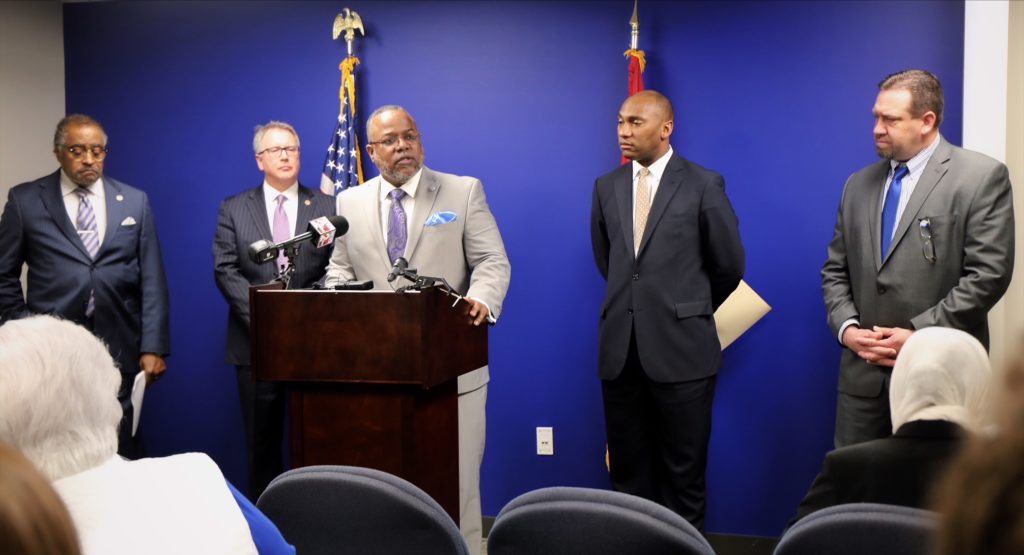
A bipartisan group of lawmakers wants to change a law that blocks people with criminal records from getting licensed for certain jobs.
A criminal record can haunt a person long after they’ve finished serving their time behind bars. For Tennesseans who’ve been to prison, prior arrests often shape where they live, whether they can apply for grants to pursue higher education and even what type of jobs they are allowed to have.
On Tuesday, the group of lawmakers said one of the most important steps the state can take to keep them from re-offending is creating more employment opportunities. Thousands of Tennesseans are released from state prisons every year, and if there is nothing for them to come back home to, the advocates say chances are the
cycle of incarceration will continue.
“Somehow we in American will take a man or a woman and put a scarlet letter on a person who’s committed a victimless crime,” Rep. Jeremy Faison, R-Crosby, says.
“We as conservatives say we want you to get off the welfare rolls, get off of food stamps, pick yourself up by your bootstraps and get to work,” Faison says. “Well, when society has tied you down to the ground, how are you going to pick yourself up by your bootstraps and get to work?”
Statewide, more than 100 kinds of jobs require a special license. From attorneys, to nurses, barbers and veterinary techs, they all require state approval.
Right now, the majority of licensing boards can deny or revoke certifications based on criminal records, even if the charges are decades old or unrelated to the job.
Rep. John DeBerry, D-Memphis, says the current law punishes people long after they’ve finished serving their sentences.
“We can continue on with this hard on crime, this unyielding ‘lock them up, shoot them up’ attitude that we had all during the ’90s,” DeBerry says. “Or at some point in time we have to ask ourselves, do we want to build schools or do we want to continue to build prisons?”
The
proposed legislation, which the lawmakers are calling “fresh start,” would reduce barriers for non-violent offenders, like people charged with certain drug crimes or writing bad checks. It would only allow boards to deny or revoke licenses for past crimes related to the job at hand.
The legislation would not apply to those on sex offender and animal abuse registries, those with violent felonies, as well as those whose crimes are related to their occupation.
This is the second bipartisan proposal announced in the last week by Sen. Kerry Roberts, R-Springfield.
“In today’s political environment, we all lament what takes place in Washington, how people seem to be full of hate, animosity, can’t get along, can’t get anything accomplished,” Roberts says. “We are here to say to the people of Tennessee that we represent you. We represent all of you. And we are working on your behalf.”
Roberts is also working with Sen. Lee Harris, D-Memphis, on gun safety legislation and has vowed to support his
push to reform drug free school zones.


